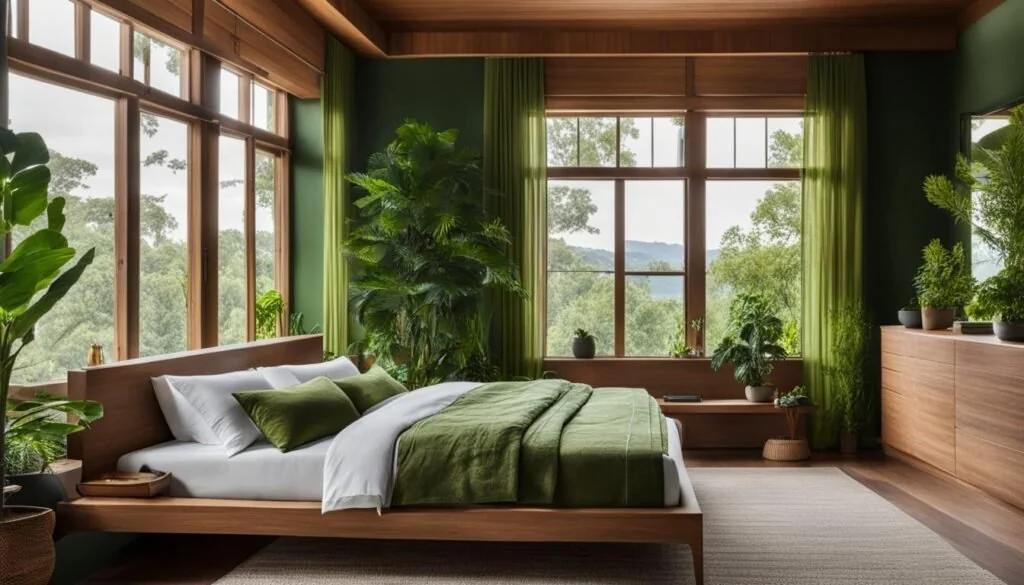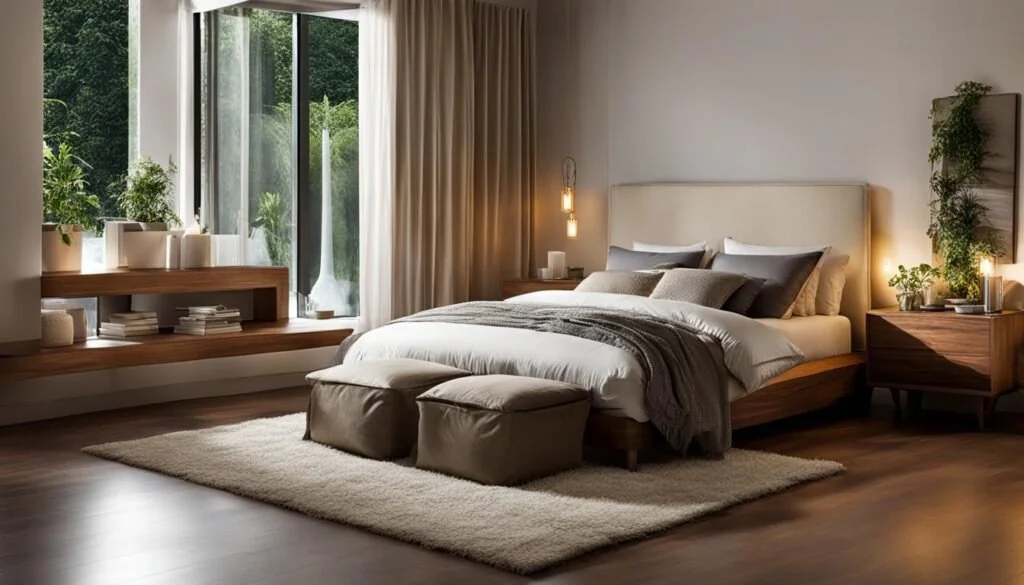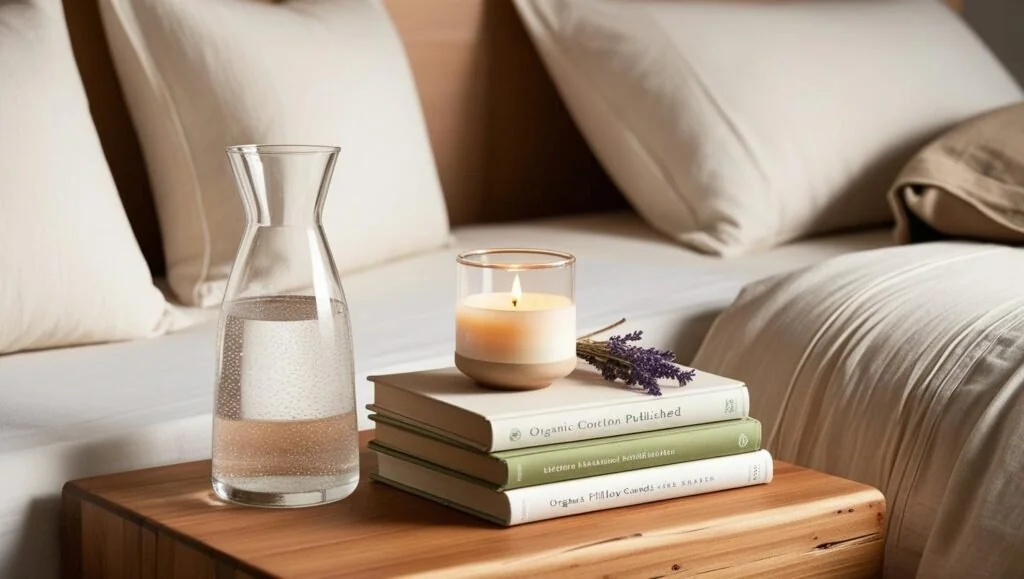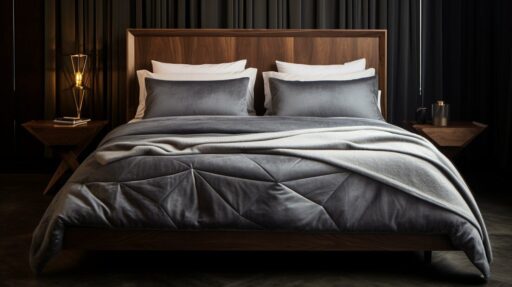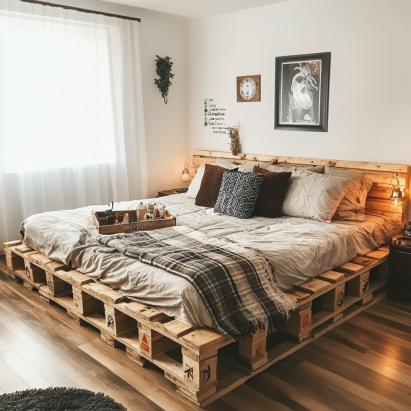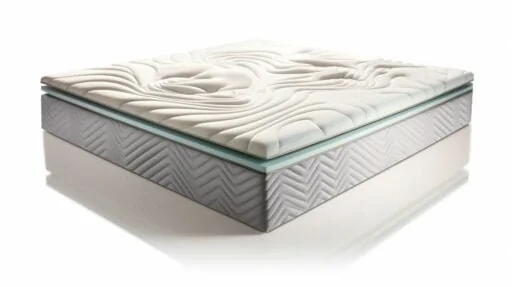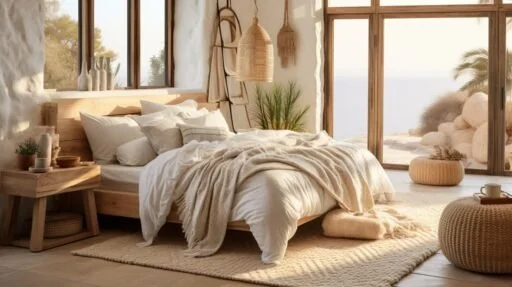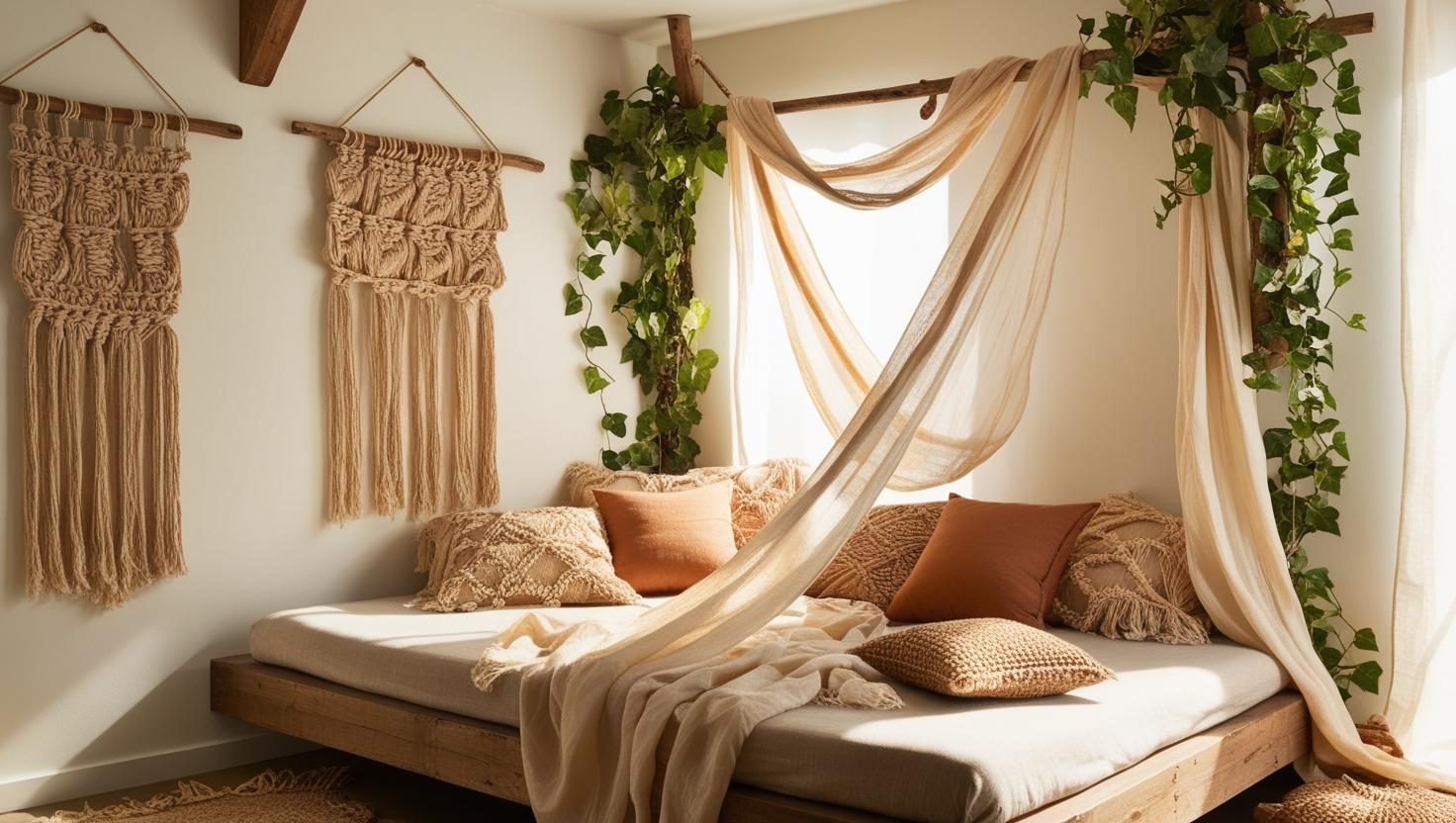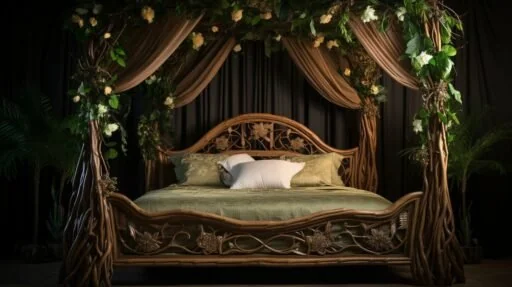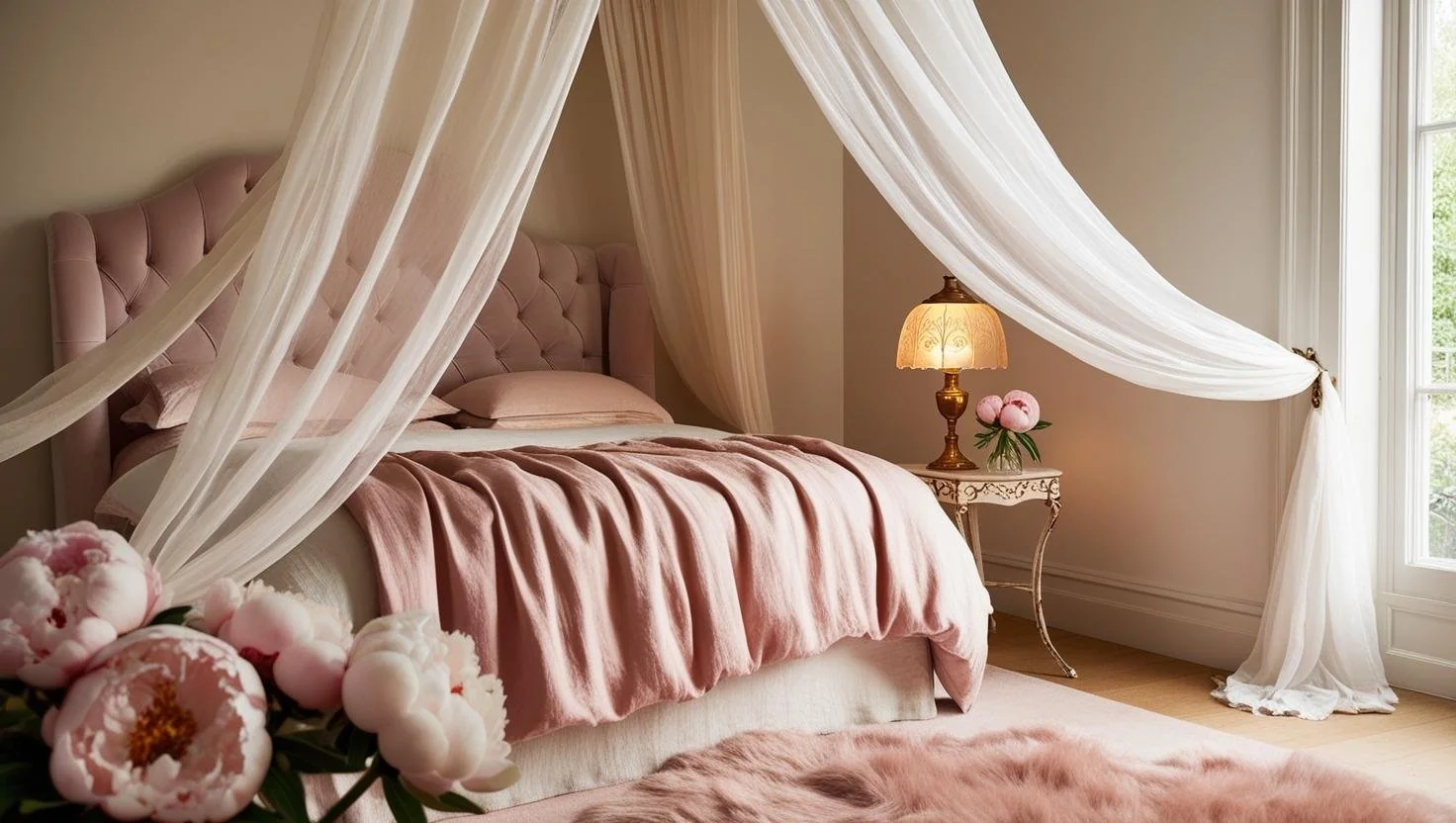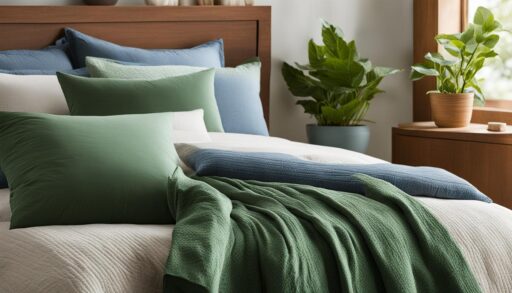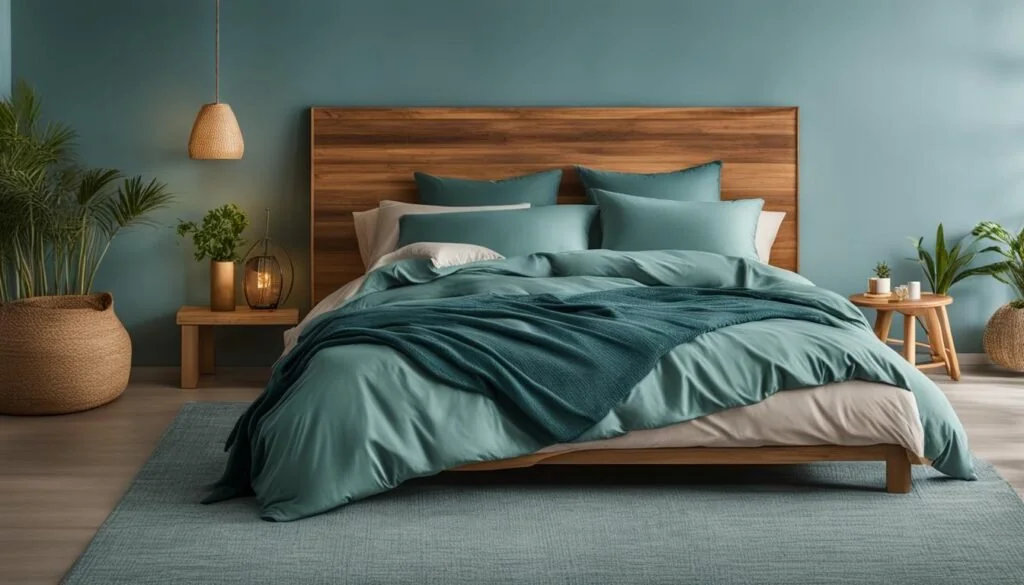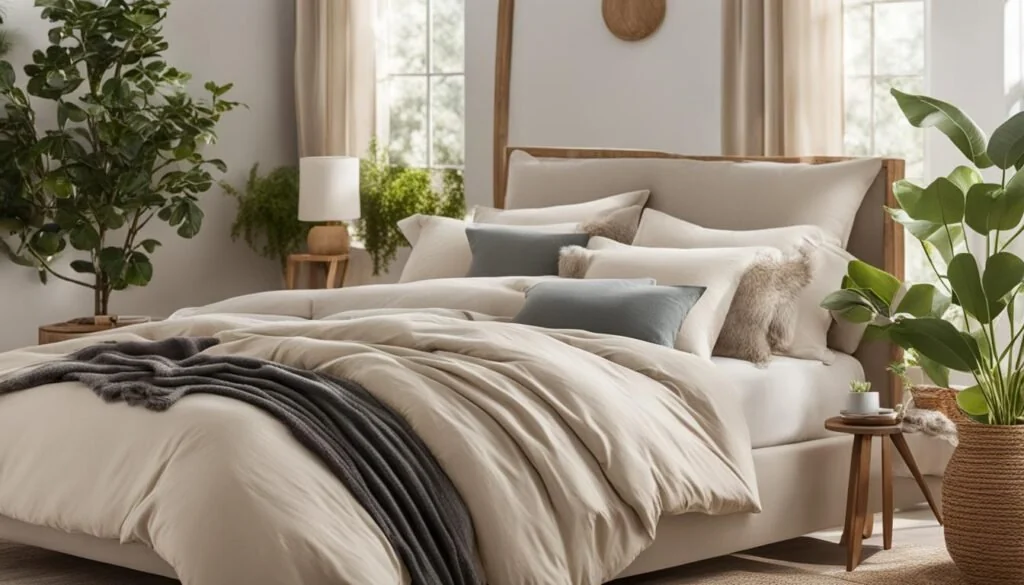Exploring Modern Bed Types: 7 Stylish Options for Every Bedroom
Ever feel overwhelmed by the sheer number of bed options out there? You’re not alone. Whether you’re furnishing a new space or refreshing your current bedroom, exploring modern bed types is the key to finding that blend of comfort, style, and practicality. Your bed isn’t just furniture—it’s your nightly retreat.
Designing your sleep sanctuary from the ground up? Try these Cozy picks:
DIY bed frame projects •
Platform & storage bed ideas •
Types of mattresses
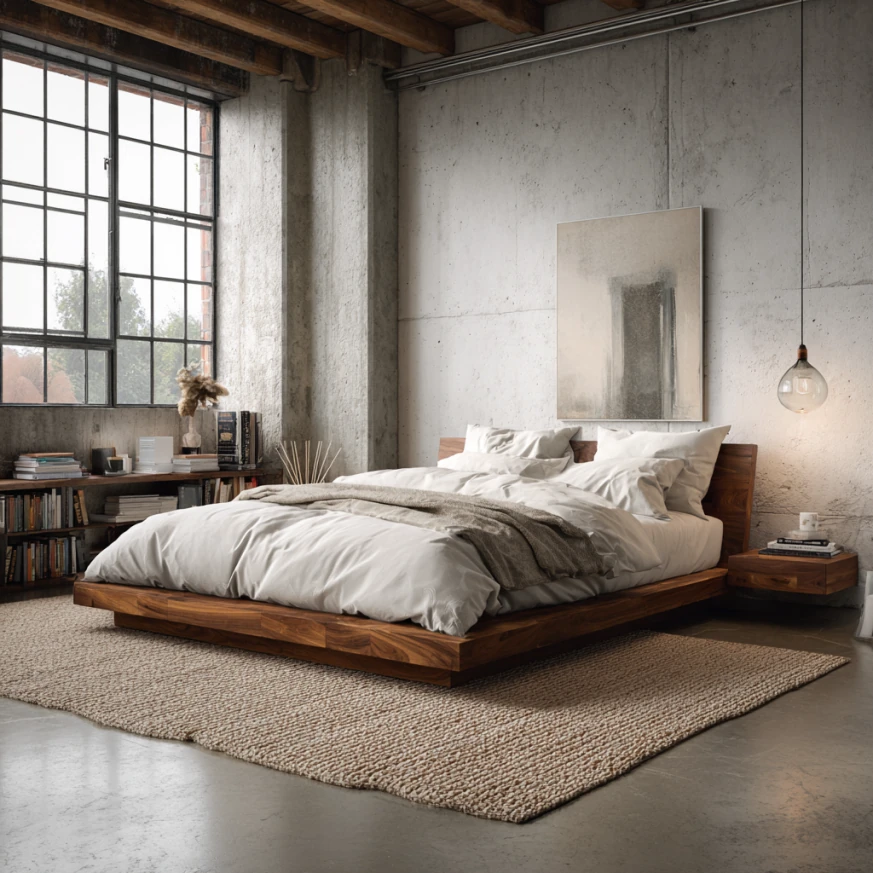
Why Exploring Modern Bed Types Matters
Your bed anchors the room and your nightly routine. The right foundation supports better posture and sleep quality while setting the tone for your design. Guidance from the Sleep Foundation highlights how frame choice, support, and materials can reduce sagging and noise and improve sleep ergonomics
(Sleep Foundation: Best Bed Frames).
Key Takeaways: Exploring Modern Bed Types
- Platform, storage, and Murphy beds excel at saving space and keeping a clean aesthetic.
- Adjustable beds deliver customizable comfort and potential health benefits.
- Canopy, upholstered, and sleigh styles emphasize ambiance and statement design.
- Match your priorities—space, comfort, style, sustainability—to the bed type.
- Use quality bedding (think organic bedding and eco-conscious sheets) to unlock durability and comfort.
1. Platform Beds
Answer first: Platform beds offer sleek lines and built-in support—no box spring needed.
Low, modern, and versatile, platform frames create an open feel in small rooms and lofts. You’ll find slat or solid bases in wood, metal, or upholstered finishes for easy styling.
- Low profile: Airy look that visually expands compact rooms.
- Built-in support: Slats or a solid deck support the mattress directly.
- Style range: From warm woods to crisp metal to cozy textiles.
Feeling crafty? Build your own with
these DIY bed frame projects.
2. Storage Beds
Answer first: Storage beds hide clutter with drawers or lift-up platforms—perfect for small spaces.
Drawers or hydraulic lifts maximize every inch without adding furniture. Choose woodgrain or upholstered styles to match the room.
- Space gains: Great for studio apartments or guest rooms.
- Compartment options: Organize bedding, off-season clothes, or shoes.
- Design fit: Seamless in contemporary or transitional spaces.
Get inspired with Cozy’s
platform & storage bed ideas.
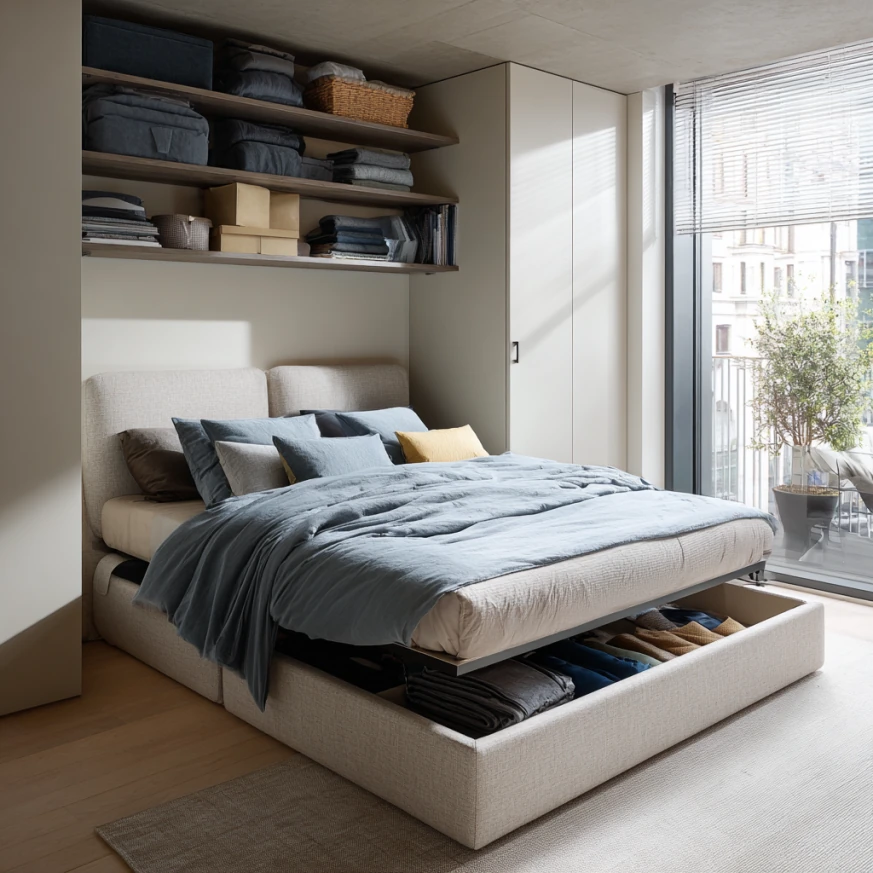
3. Adjustable Beds
Answer first: Adjustable bases raise the head and/or feet to support comfort, circulation, and alignment.
For snoring, pressure relief, or reflux, an adjustable base can help. Pair it with an adjustable-friendly mattress (many foam and hybrid models qualify).
- Custom comfort: Fine-tune your sleep position.
- Potential benefits: Pressure relief and improved spinal alignment.
- Simple controls: Remotes and app connectivity are common.
More on top-rated adjustable bases:
Sleep Foundation: Best Adjustable Beds.
For mattress compatibility, see Cozy’s
Types of Mattresses.
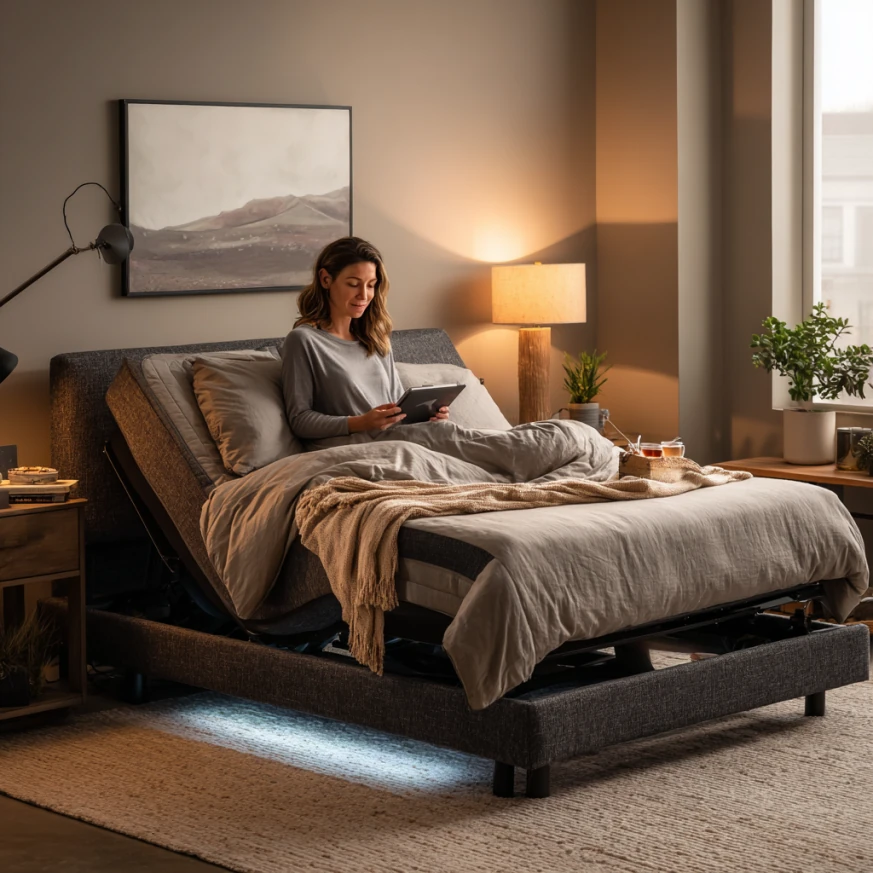
4. Murphy Beds
Answer first: Murphy (wall) beds fold into cabinetry to clear floor space for daytime activities.
Ideal for home offices or studios, modern gas or spring mechanisms make transitions smooth, and many designs include shelves or desks.
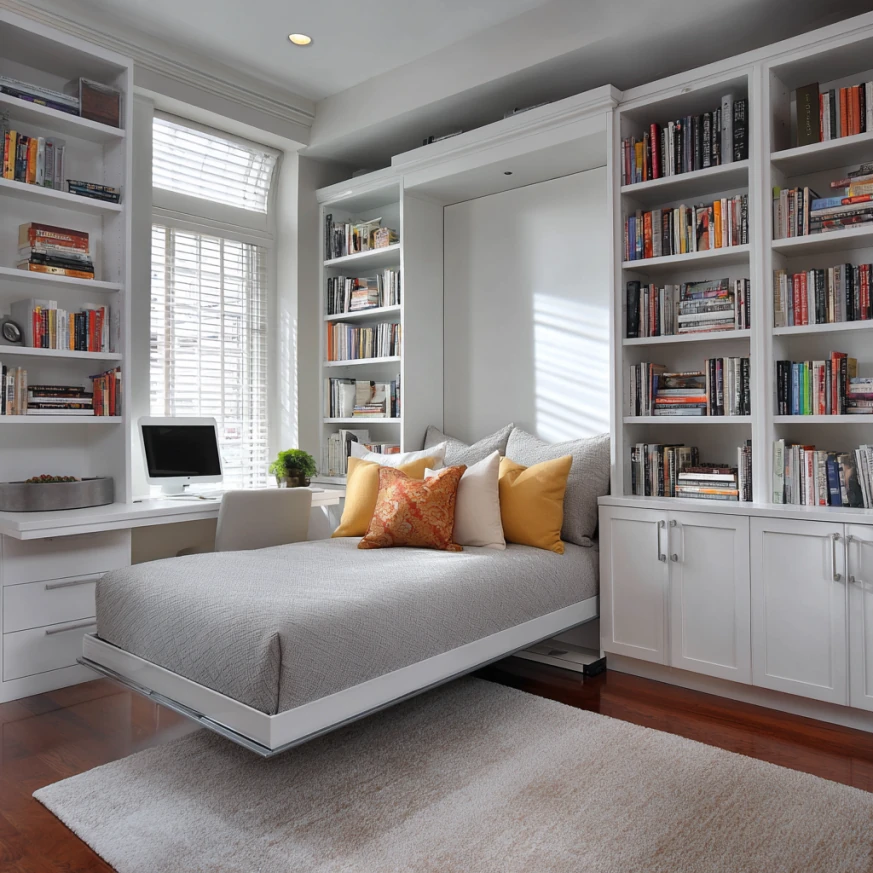
5. Canopy Beds
Answer first: Canopy frames create a dramatic focal point or a cozy, cocooned feel with sheer fabric.
Choose from sculptural or minimalist silhouettes to suit a modern room. For style ideas:
Parachute Home: Bed Frame Ideas
and Cozy’s
four-poster bed design inspiration.
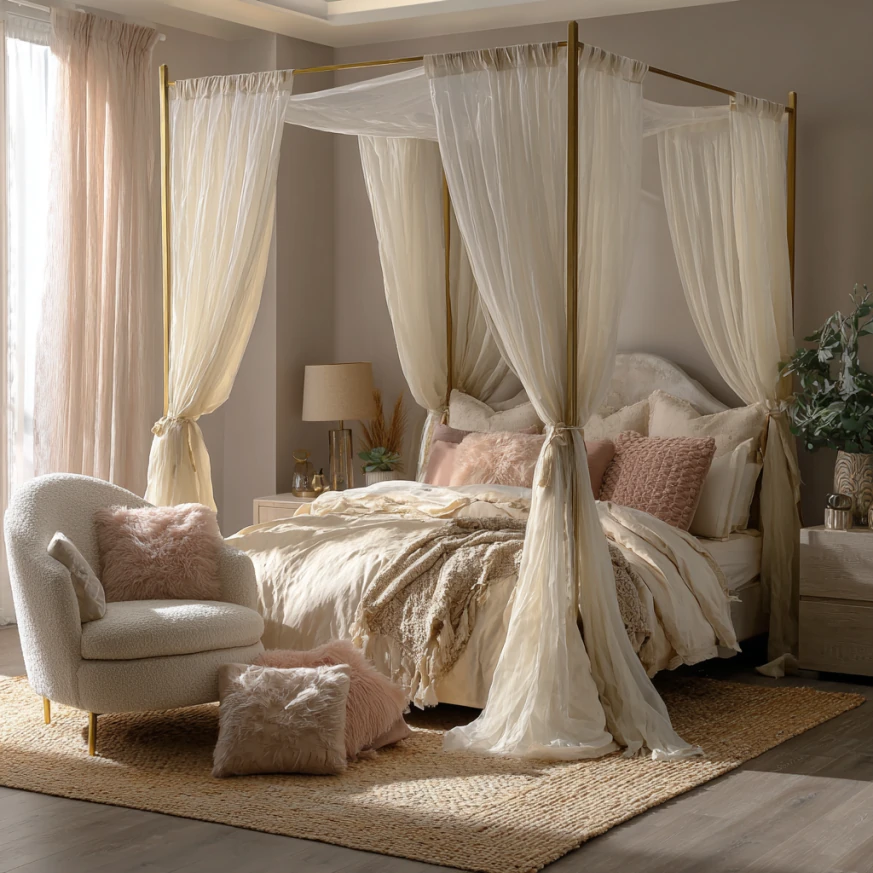
6. Upholstered Beds
Answer first: Upholstered frames add softness and support with padded headboards for lounging.
Velvet, linen, or faux leather provide texture and warmth. Look for tufting, channeling, or nailhead details if you want extra polish. Pair with breathable, sustainable bedding or organic bedding for a comfortable, eco-conscious setup.
Explore materials and comfort in Cozy’s
bed materials guide.
7. Sleigh Beds
Answer first: Sleigh beds bring curved, sculptural elegance—great for classic or transitional rooms.
Often made from sturdy hardwoods, sleigh frames add character and longevity while anchoring the space.
Browse a wide variety of bed types and visuals at
Better Homes & Gardens: Bed Types.
Eco-Friendly vs. Conventional Bed Materials
Answer first: Sustainable frames and finishes reduce VOCs and waste while offering equal or better durability.
| Feature | Eco-Friendly | Conventional |
|---|---|---|
| Materials | FSC-certified/reclaimed wood, bamboo | Non-certified MDF, mixed composites |
| Finishes | Low-VOC paints, natural oils/waxes | High-VOC lacquers, formaldehyde-based glues |
| Longevity | Repairable, refinishable components | Shorter replacement cycles |
| End-of-Life | Recyclable/biodegradable pathways | Often landfill-bound |
For a balanced setup, match a durable frame with breathable, eco-conscious sheets and sustainable bedding to support clean indoor air and long-term comfort.
Final Thoughts on Exploring Modern Bed Types
Whether you’re optimizing space, dialing in comfort, or making a design statement, exploring modern bed types helps you build a bedroom that supports deep rest and daily life. Keep materials, support, and layout in mind—and browse Cozy Bed Quarters for more inspo and how-to guides.
FAQs About Exploring Modern Bed Types
- What is the best bed type for small bedrooms?
- Storage beds and Murphy beds. They free up floor area without sacrificing style.
- Are platform beds comfortable without a box spring?
- Yes. Platforms use slats or a solid deck to support the mattress directly.
- Do adjustable beds work with all mattresses?
- No. Look for “adjustable-friendly” models—many memory foam and hybrid mattresses qualify.
- What materials are best for upholstered beds?
- Linen, velvet, or quality faux leather offer texture and easy care.
- Do canopy beds fit modern decor?
- Absolutely. Choose clean, linear frames and light draping for a contemporary look.
Related Reading
- Sleep Foundation — Best Bed Frames
- Sleep Foundation — Best Adjustable Beds
- Better Homes & Gardens — Bed Types Guide
More Expert Insights
Modern bed types offer stylish, smart, and space-saving solutions for today’s sleep needs. From platform to smart beds, here’s your guide to choosing the best one for your lifestyle.
Modern bed types refer to contemporary designs that combine clean aesthetics with everyday practicality. These beds feature smart innovations like tech integration, under-bed storage, and adjustable frames, perfect for adapting to your lifestyle. Whether you live in a tiny apartment or a spacious loft, there’s a modern bed that meets your needs. For more design inspiration, visit our modern bed designs collection. You can also explore Decorilla’s 2023 bedroom trends to see what’s currently popular in bedroom design.
Adjustable beds are all about personalized comfort. You can elevate your head, legs, or both to find the perfect lounging position. Great for those with circulation issues, back pain, or just a love for Netflix marathons. Many models now sync with mobile apps, offering sleep tracking and position presets.
Smart beds are the future of sleep. With features like built-in massagers, temperature regulation, and AI-driven sleep analysis, they offer unmatched comfort and convenience. Some even connect with Alexa or Google Home for hands-free controls.
Choosing the right bed starts with understanding your needs. Do you prioritize storage, tech, or aesthetics? Here’s a quick breakdown:
And don’t forget the foundation — the right mattress matters just as much. Check out our guide to choosing the best mattress for your bed frame. For more expert advice on bedroom styling, read House Beautiful’s guide to current bedroom trends.
Need design inspiration? This bedroom blends multiple modern bed types — a platform base, adjustable features, and minimalist accents — for a space that’s both stylish and functional. You might also enjoy our guide on modern futons and daybeds for flexible sleeping arrangements. Also, check out Apartment Therapy’s bedroom design trends for more creative ideas.
Modern bed types offer more than good looks — they enhance comfort, optimize space, and add tech-savvy features to your sleep setup. Take time to explore your options and create a bedroom that fits your unique lifestyle and needs. For even more ideas, visit our Top 10 Bedroom Decor Ideas or dive deeper into the durability of metal bed frames.
For expert takes beyond our cozy corner, check out AllModern’s guide to bed designs and Casper’s breakdown of bed types.
Choosing the right bed can transform not just your sleep—but your entire bedroom. In this modern bed types comprehensive guide, we’ll explore the most stylish, functional, and trending bed styles of today.
Some models now integrate soft-close drawers, USB ports, and ambient lighting—combining practicality with luxury.
Adjustable beds let you raise or lower the head, feet—or both—offering ergonomic support tailored to your needs.
Modern versions include massage functions, memory presets, anti-snore modes, and app-based controls. These can help ease back pain, reduce snoring, or simply make reading in bed more comfortable.
Today’s Murphy beds often include fold-out desks, shelving, or couches—transforming a bedroom into an office or lounge when the bed is hidden.
Use sheer drapery or LED accent lighting for a refined, airy look. Contemporary canopy beds work especially well in high-ceiling or lofted spaces.
Upholstered beds bring tactile comfort and visual warmth—perfect for creating cozy yet modern bedrooms.
Smart beds integrate sensors, climate control, and adaptive support to optimize rest. They sync with sleep apps, adjust firmness automatically, and analyze sleep cycles.
Some can raise your head in response to snoring, gently adjust position through the night, or even wake you at an optimal sleep stage.
Green design is growing in importance. Sustainable bed types prioritize materials, manufacturing practices, and end-of-life recyclability.
When comparing, ask about: wood sourcing certifications, fabric emission standards, recyclability of metal parts, and take-back or refurbishment programs.






